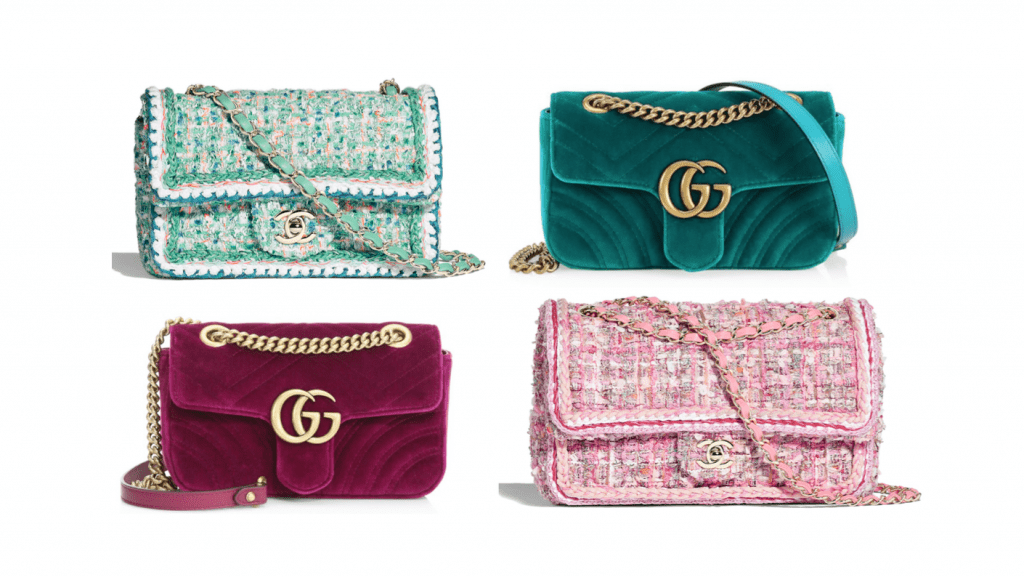On January 1, China enacted its first-ever e-commerce-specific legislation, and in doing so, has potentially upended the multi-billion dollar practice that connects a huge pool of Chinese consumers to attractively-priced luxury goods. The law, which was passed in August and put into practice early this year, contains provisions that aim to remedy the widespread availability of counterfeits on native Chinese platforms, bolster the protection of personal data, and clarify the tax obligations for internet-based retailers. Beyond those initiatives is an additional requirement: as of January 1, daigou merchants have to register as market entities and pay taxes accordingly.
Aside from enabling brands and other rights holders to pursue e-commerce operators, like Alibaba, in connection with intellectual property infringement and counterfeiting, the Chinese e-commerce law is significant as it is the first piece of legislation to directly impact the big business that is daigou.
Translating to “buying on behalf of,” daigou is the title of an individual who poses as an ordinary consumer in order to buy products – namely, luxury goods that are cheaper beyond China’s highly-taxed borders – outside of the country on behalf of customers in mainland China. The term is also used to refer to the practice, as a whole, one that as of 2015, was worth as much as $7.5 billion, according to consulting firm Bain & Company.
A particularly active daigou “can earn between 50,000 yuan [$7,500] and 60,000 yuan [$9,000] every month — around eight times Shanghai’s average salary,” Chinese financial publication Caixin Global noted, buying authentic luxury goods in duty-free shops in South Korea, Japan, and/or Australia, for instance, and bringing them back to willing buyers in China.
Not a novel tactic, daigou has proven popular over the past decade, in particular, as Chinese consumers have sought to avoid the steep import tariffs and value added taxes passed onto them if they buy Western luxury goods at home. More than that, regional price differences have also heavily weighed on Chinese buyers. Western products sold in China can be as much as 20 percent more expensive than the exact same products sold in Europe, prompting Chinese consumers to either shop for high-end products while traveling outside of the country or seek the assistance of daigous.
According to Bloomberg, “Around 2014, when big-name fashion houses, such as Chanel and Gucci, routinely priced their wares as much as 80 percent higher in China than Europe, daigou accounted for four out of 10 luxury goods purchased by Chinese consumers.” While many brands have attempted to harmonize prices across the board, Chinese taxes still make luxury purchases particularly expensive on the mainland, making a lucrative trade for the daigous, who can charge for their services, while still offering the products to the end consumer at a rate that less than what they would pay in-store in China.
Not only are daigous and Chinese consumers benefitting from this grey market trade, “Luxury brands like Gucci, Hermès and Louis Vuitton have been clear winners,” per Bloomberg. “Smaller labels like Christopher Kane that lack the resources to physically set up shop in China” have also benefitted from an influx in revenues thanks to daigou sales.
But the practice is far less rosy in the eyes of Chinese officials, as no shortage of these personal shoppers incorrectly identify the value of the goods they purchased outside of the country to customs authorities, while others conceal their purchases altogether when they arrive back at the Chinese border, thereby giving rise to widespread instances of tax evasion. These practices – paired with a government push for the development and patronization of native Chinese brands – have prompted the application of the newly-enacted law to the daigou trade.
Daigou – which has, over the years, evolved from a small-scale among-friends practice to a bona fide business with digital platforms – is now subject to the same legal regulations as all other digitally-connected businesses in China. In particular, daigou are now “required to register as e-commerce operators and acquire licenses in both China and the country where they shop, making their business subject to taxation” when imports exceed the duty-free limit of 5,000 yuan (approximately $750), says finance-focused attorney Cheng Jiuyu of the Beijing-based Zhongwen Law Firm.
Those who do not comply face fines of up to 2 million yuan and potentially, criminal charges.
Cheng suspects that as a result of the law, many daigou will, in fact, register and truthfully declare the items they’ve bought abroad, and thereafter, pass the increased costs on to their customers. As for one newly-retired daigou, a Chinese woman in her early 30’s named Li, she says the law, paired with increased scrutiny by customs officials at Chinese borders, has rattled the industry. “Of course, we knew that bringing in such large amounts of undeclared products wasn’t right,” she told Caixin Global. “But we thought paying a fine would be the most severe punishment. Who could have known that the worst consequence would be jail?”
Now, “Everyone’s in a state of panic,” she says. “Everyone’s worried that they could be next to be searched or caught — some even want to quit.” But not everyone is cashing out.
At least some daigou are finding ways to flout the law. Many are mislabeling designer goods on their websites to avoid detection by the Chinese government, while others are using “foreign languages like Russian, Korean and Japanese to introduce the products, intentionally avoiding the mentioning of brand name, product style, and price,” according to Jing Daily.
It seems that if the profits are high enough, at least some daigou are willing to risk it.













